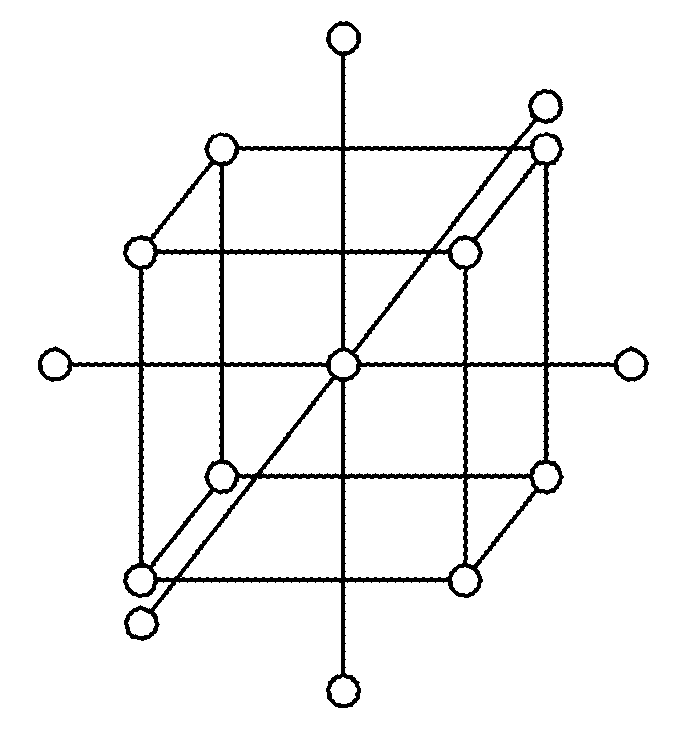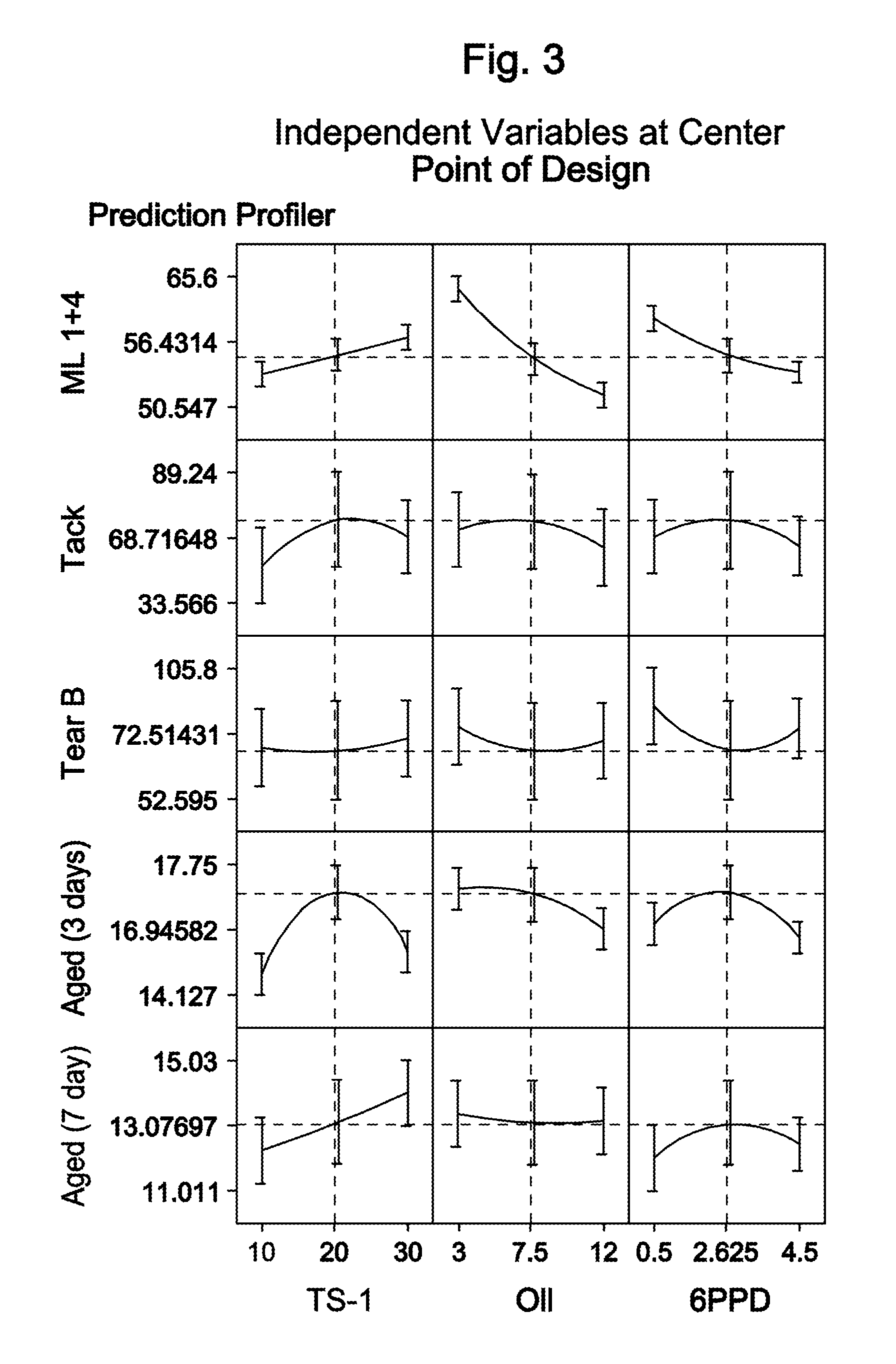Ethylene-Propylene Terpolymers in Tire Sidewalls
a technology of ethylene-propylene terpolymer and tire sidewall, which is applied in the field of compositions and tire sidewalls, can solve the problems of tire sidewall formulation, tire sidewall therefore sees extended service life, excessive heat history, etc., and achieves the effects of improving tack, reducing ozone cracking, and improving tensile strength retention
- Summary
- Abstract
- Description
- Claims
- Application Information
AI Technical Summary
Benefits of technology
Problems solved by technology
Method used
Image
Examples
examples
[0141]The abbreviations in appended Table 1 are used in the examples. In the examples below, the following compounding procedures were used. A BANBURY™ 1-liter laboratory mixer was used with a recommended fill factor of 75% for the first pass, 70% for the final pass. For the first pass, the mixer was set at 80 rpm, the ram pressure at 410 kPa (60 psi), and the chamber temperature at 50° C. After running a warm-up batch, the rubbers were added, the ram lowered, two-thirds of the carbon black was added at 30 seconds, and the remaining carbon black, oils, and any other powders added at 60 seconds. All compounds had a drop temperature of 160° C. and a mix time target of 5 minutes (300 seconds). At the end of the first stage, the compound temperature, mix time, batch weight, and any available power integrator data (energy) were recorded.
[0142]For the final mixing stage, the mixer was set at 30-40 rpm, the ram pressure at 275 kPa (40 psi) and the chamber temperature at 40° C. After checki...
examples 1-3
[0144]Three samples of an ethylene-propylene-diene terpolymer having isotactic polypropylene crystallinity were used to develop a tire sidewall composition. The properties of the terpolymer samples are listed in Table 2:
TABLE 2Terpolymer Composition and RheologySampleC2 (wt %)C3 (wt %)ENB (wt %)MFR (dg / min)TS-116.3081.702.003.6TS-213.4084.602.003.8TS-39.4088.651.954.4
[0145]The three terpolymer samples were evaluated in a tire model black sidewall compound. Such compounds are typically blends of polybutadiene and natural rubber. Tire sidewalls are nominally 50 / 50 blends of NR and BR, the industry standard to optimize fatigue resistance. The terpolymer samples were added at 20 phr, replacing 10 phr each of NR and BR. The recipes for the sidewall compounds are given in Table 3, and compound property data are summarized in Table 4, both appended below. From the results illustrated in Table 4, it is evident that addition of the terpolymer according to the invention leads to an improvemen...
example 4
[0147]Tire sidewall staining is in many instances due to the blooming of 6PPD to the surface. A three variable designed experiment considering the respective proportions of terpolymer TS-1,6PPD, and oil was run to look at the effect of reducing 6PPD and improving color and appearance qualities. A design space approach as illustrated in FIG. 1 was used to develop a statistical model to determine the effects of varying amounts of terpolymer, oil and 6PPD, with independent variables varied within the limits shown in Table 6.
TABLE 6Design Space LimitsVariableMinimumMaximumTS-1, phr1030Oil, phr3126PPD, phr0.54.5
[0148]This three-variable standard central composite design was used to develop compound test data. The data were imported to SAS JMP statistical software and regression equations were calculated with the software using the relationship:
Dependent Variable=aX+bY+cZ+dX2+eY2+fZ2+gXy+hXZ+jYZ+constant
The terms X, Y and Z represent the three independent variables and the coefficients “a...
PUM
| Property | Measurement | Unit |
|---|---|---|
| melting point | aaaaa | aaaaa |
| wt % | aaaaa | aaaaa |
| wt % | aaaaa | aaaaa |
Abstract
Description
Claims
Application Information
 Login to View More
Login to View More - R&D
- Intellectual Property
- Life Sciences
- Materials
- Tech Scout
- Unparalleled Data Quality
- Higher Quality Content
- 60% Fewer Hallucinations
Browse by: Latest US Patents, China's latest patents, Technical Efficacy Thesaurus, Application Domain, Technology Topic, Popular Technical Reports.
© 2025 PatSnap. All rights reserved.Legal|Privacy policy|Modern Slavery Act Transparency Statement|Sitemap|About US| Contact US: help@patsnap.com



